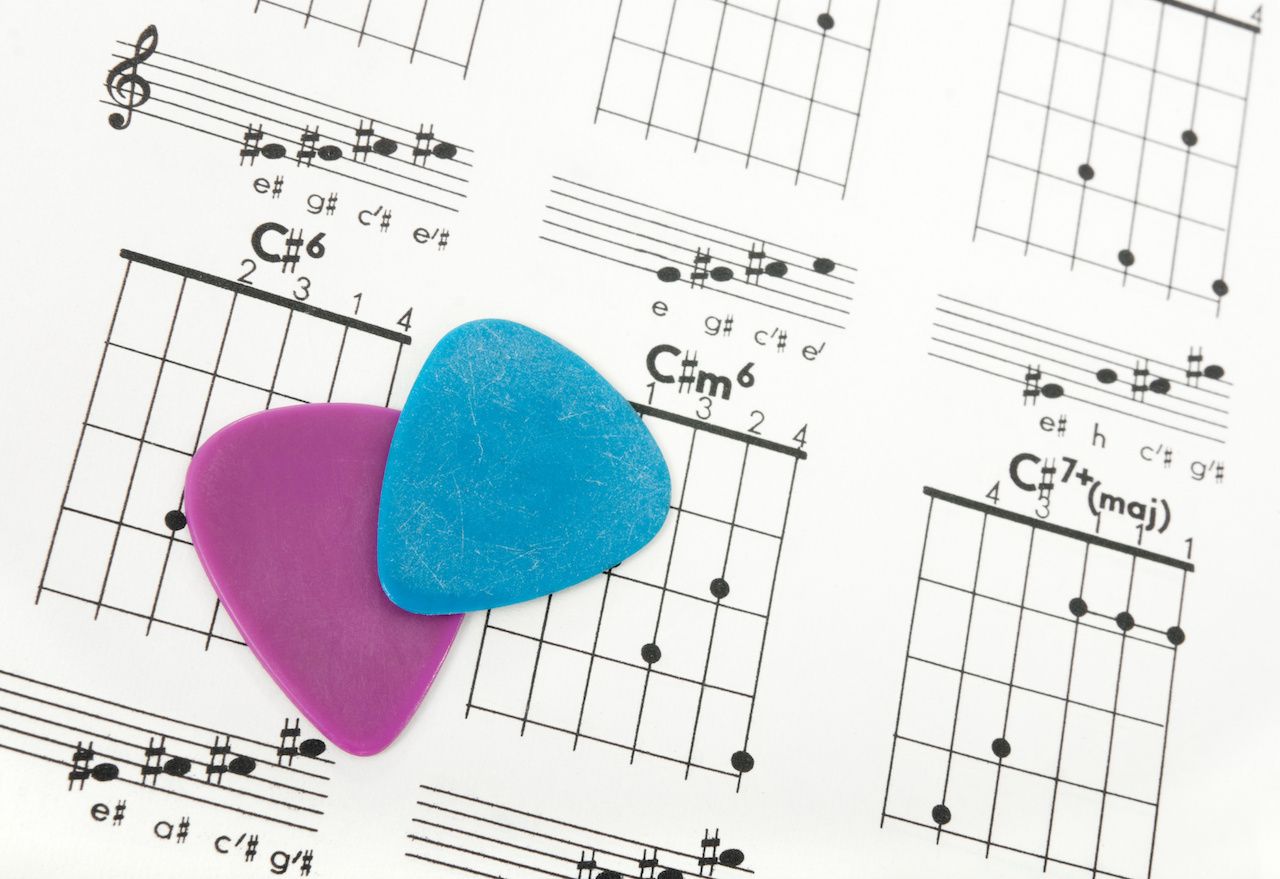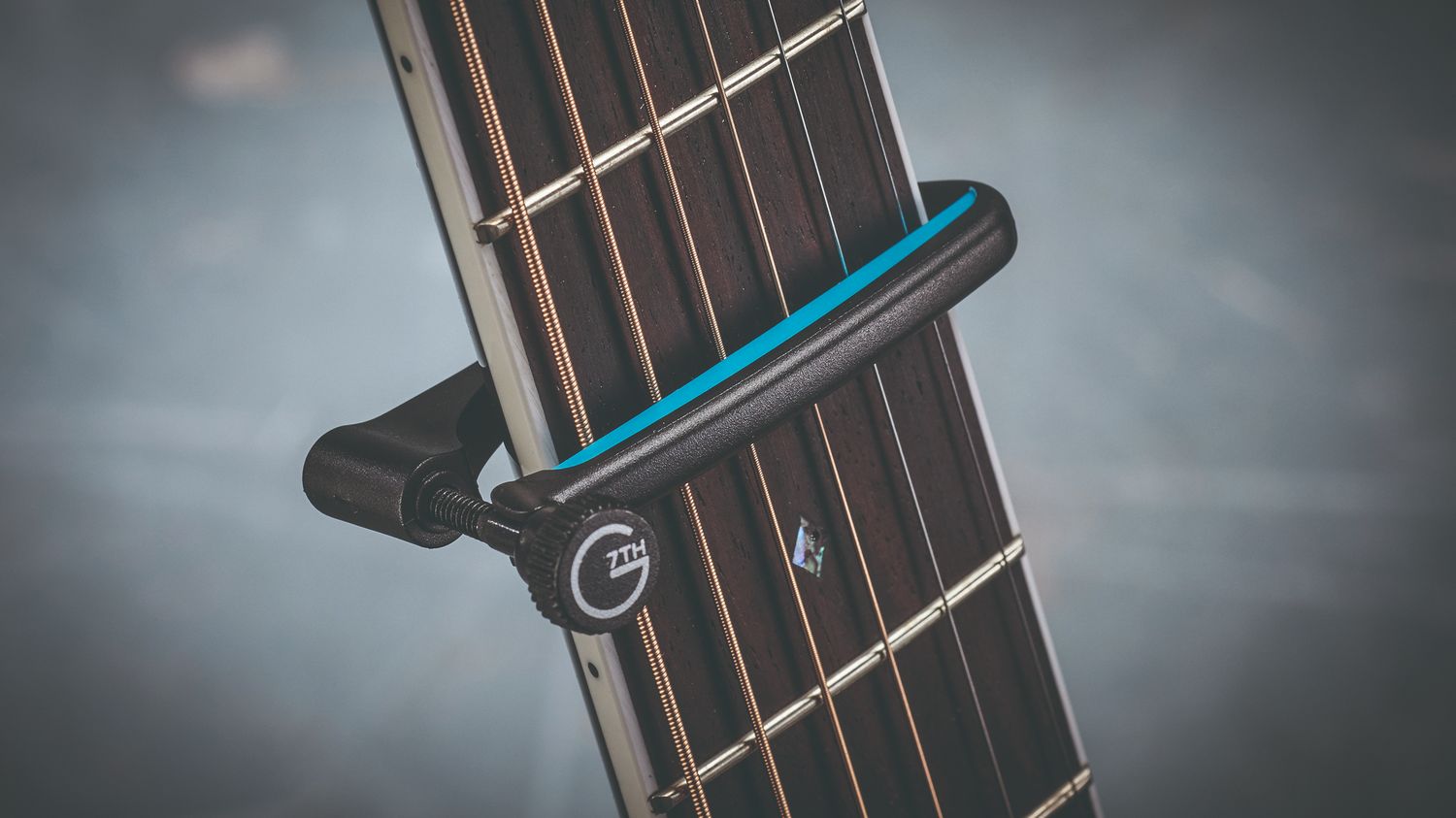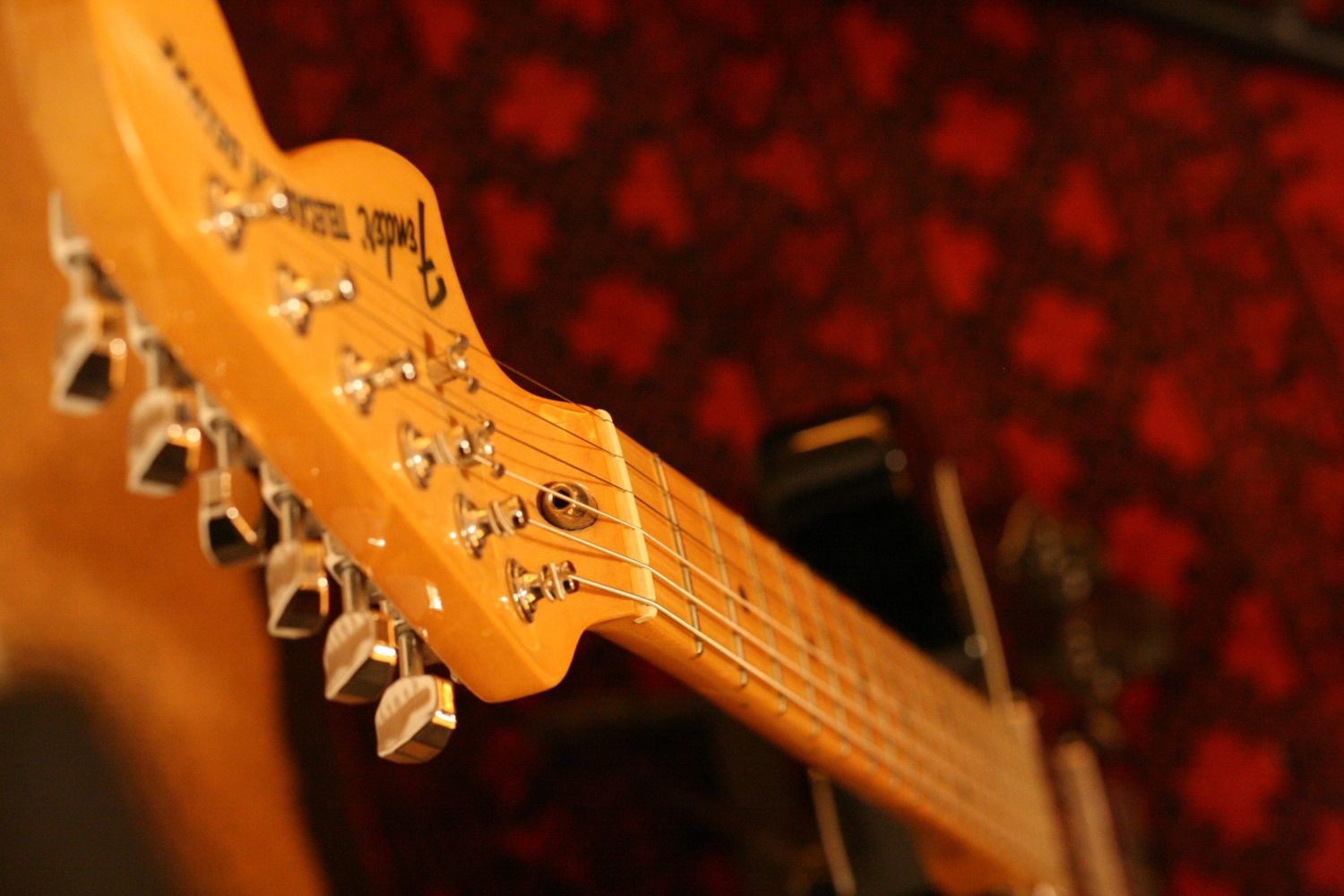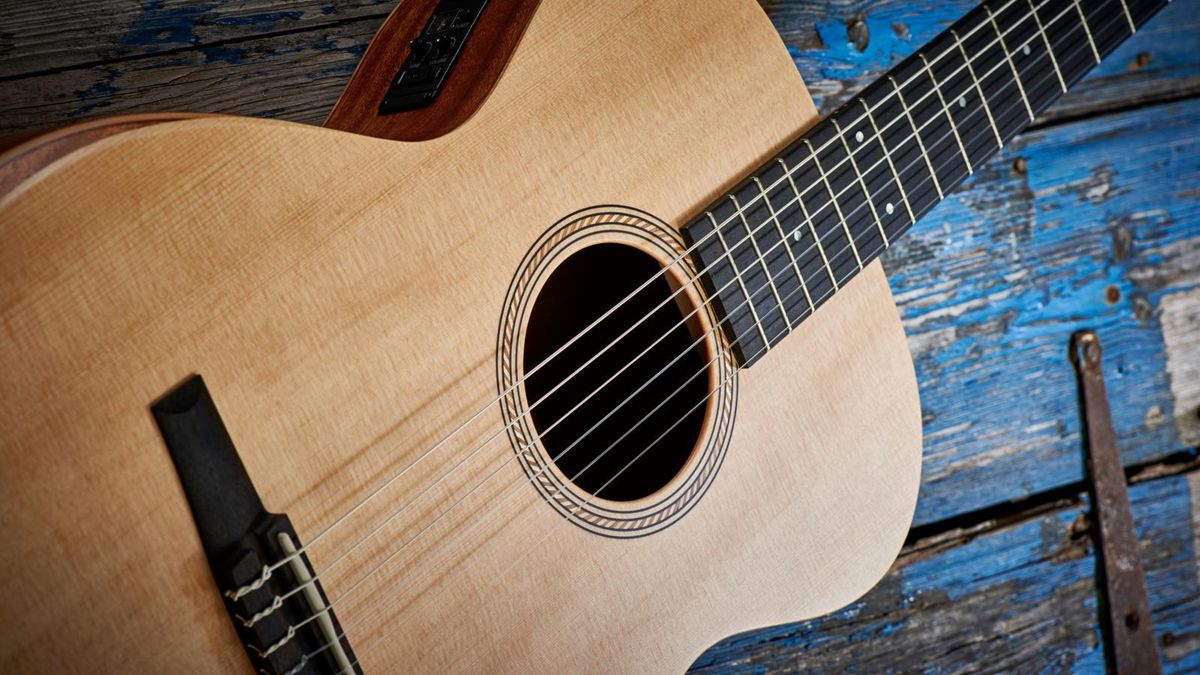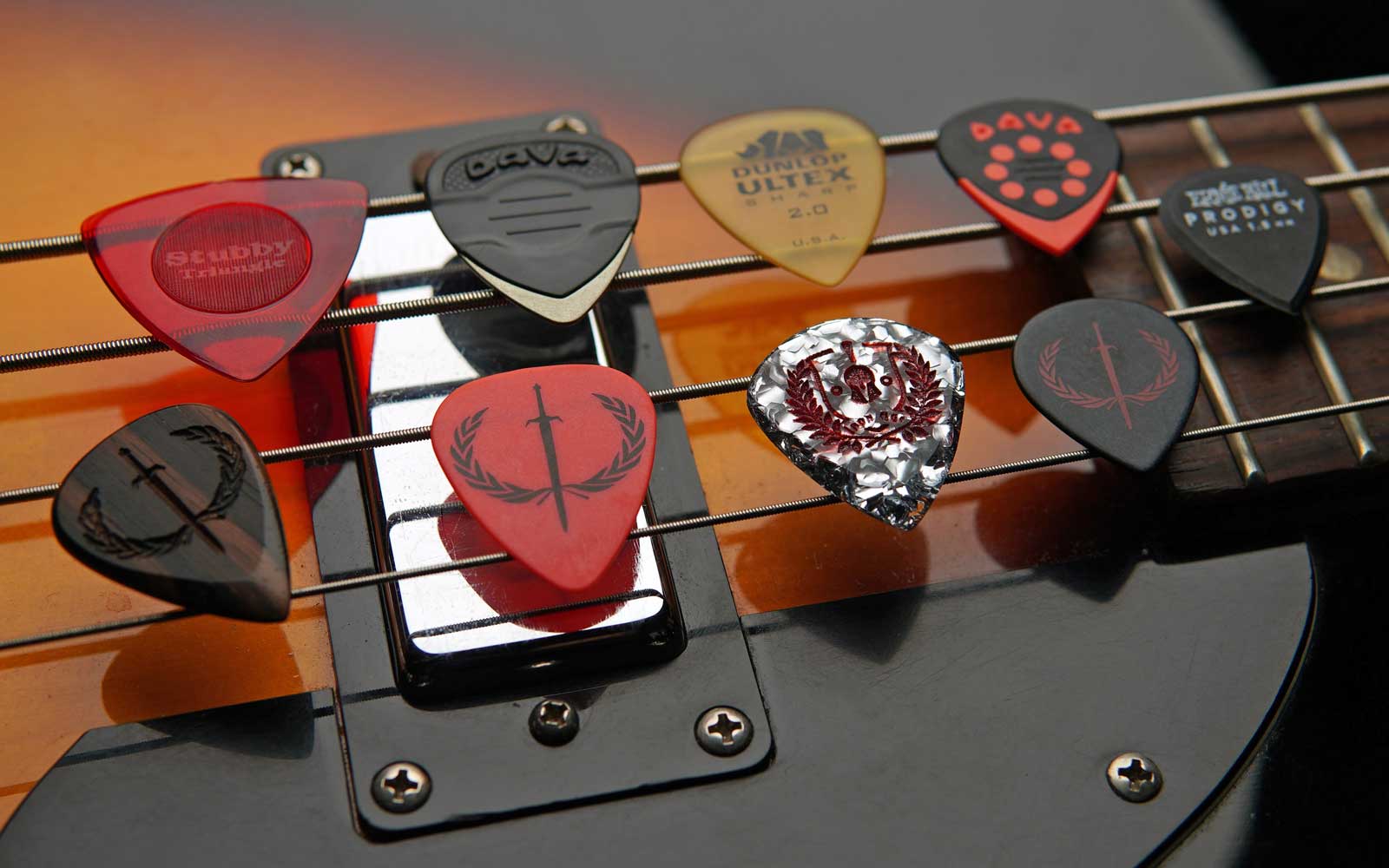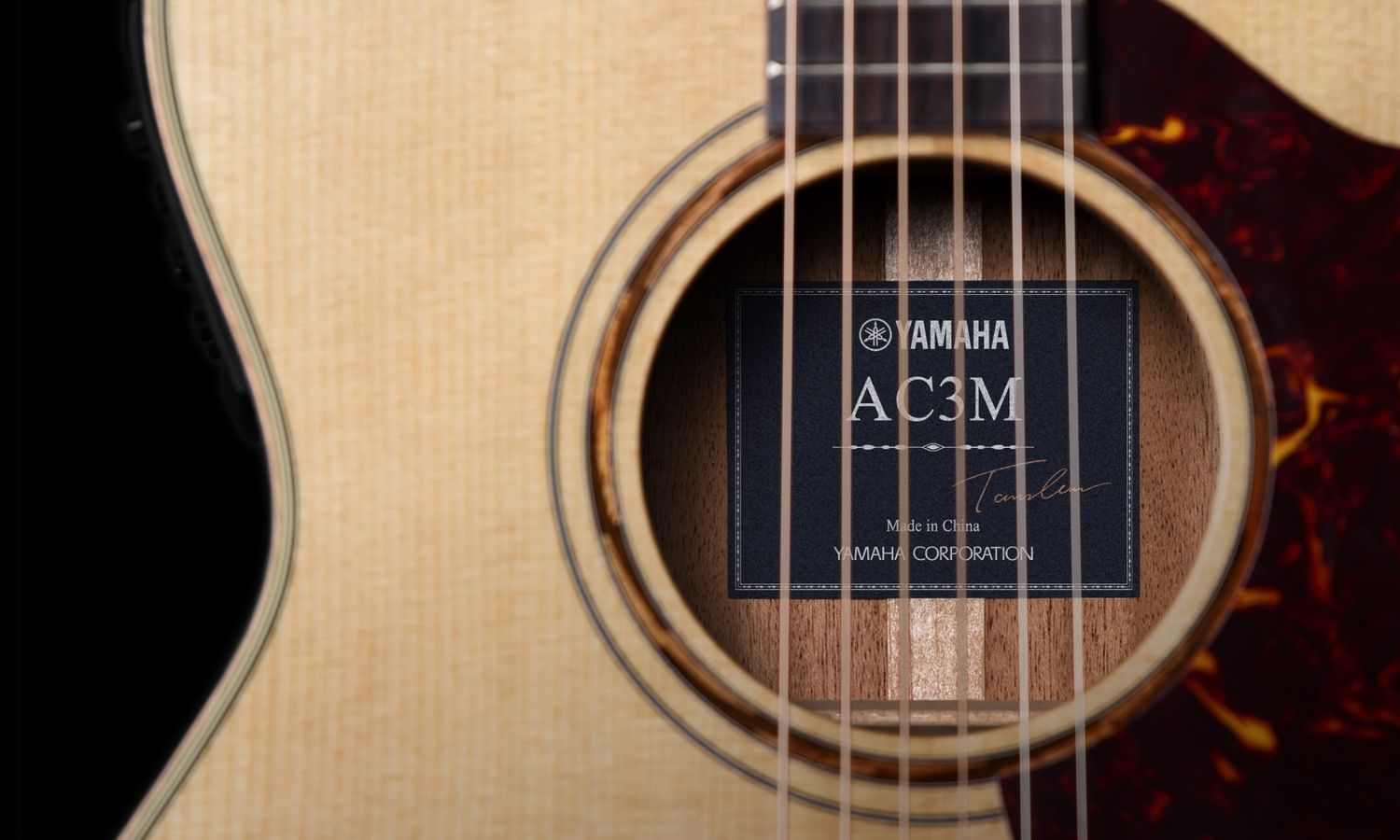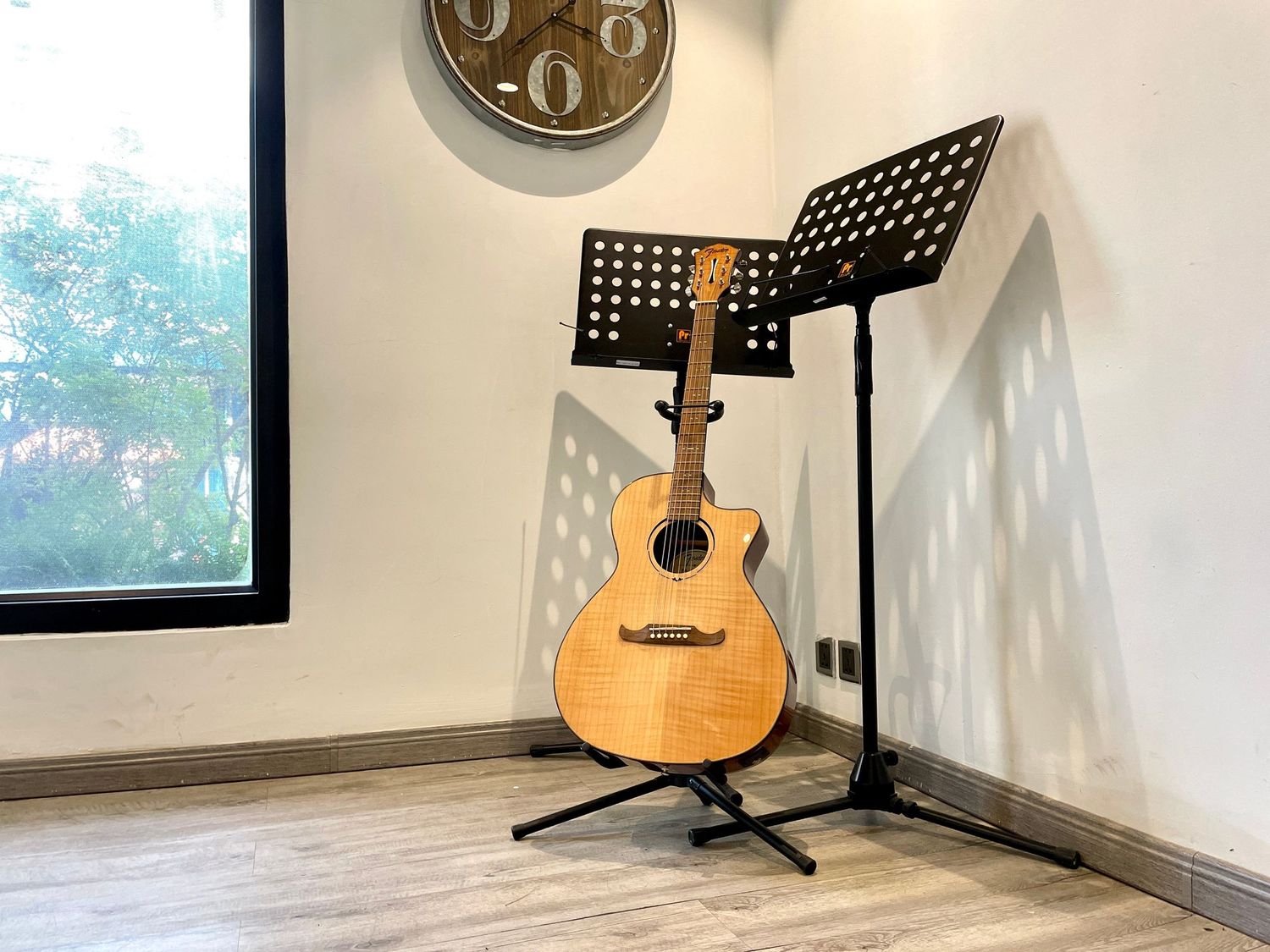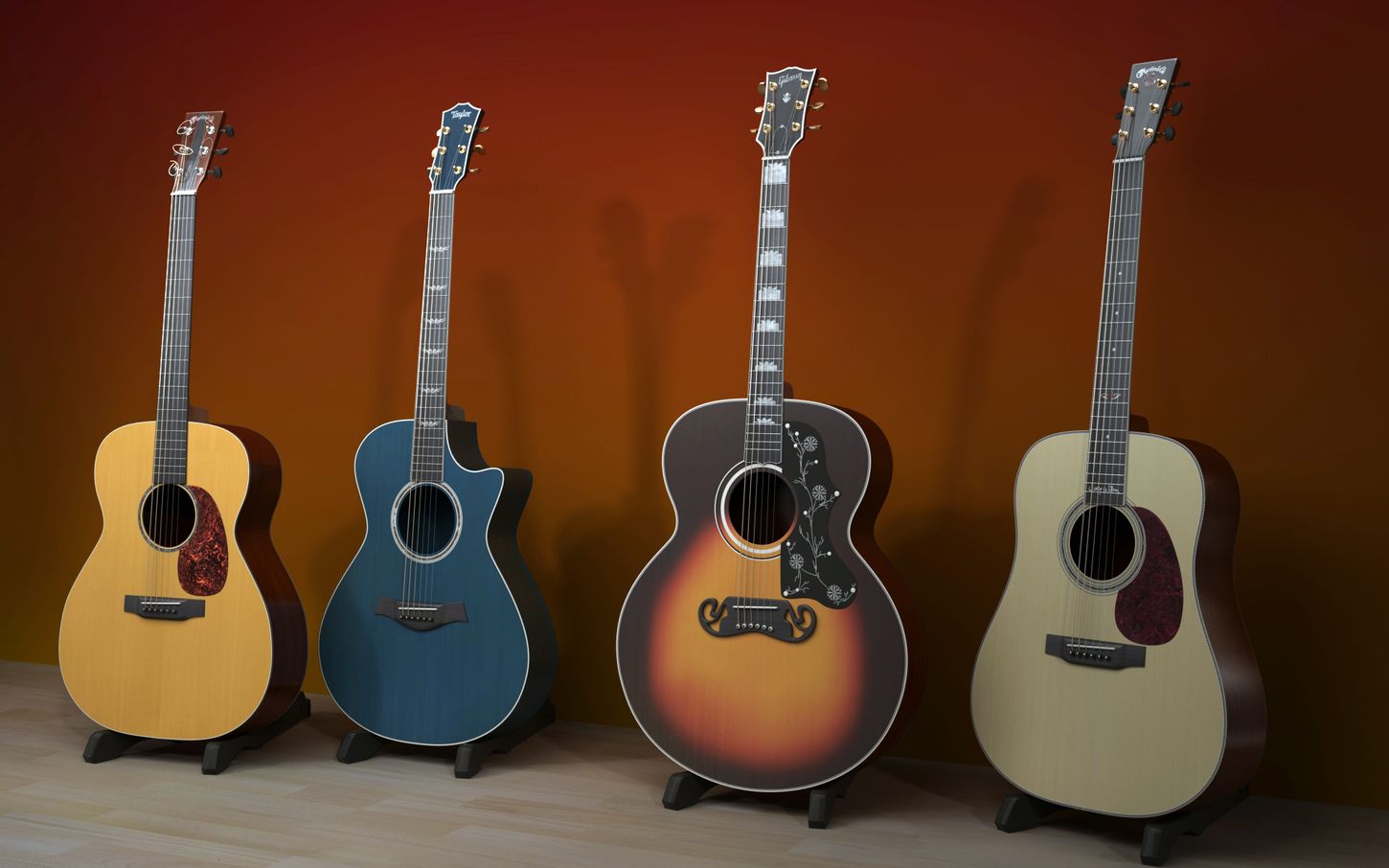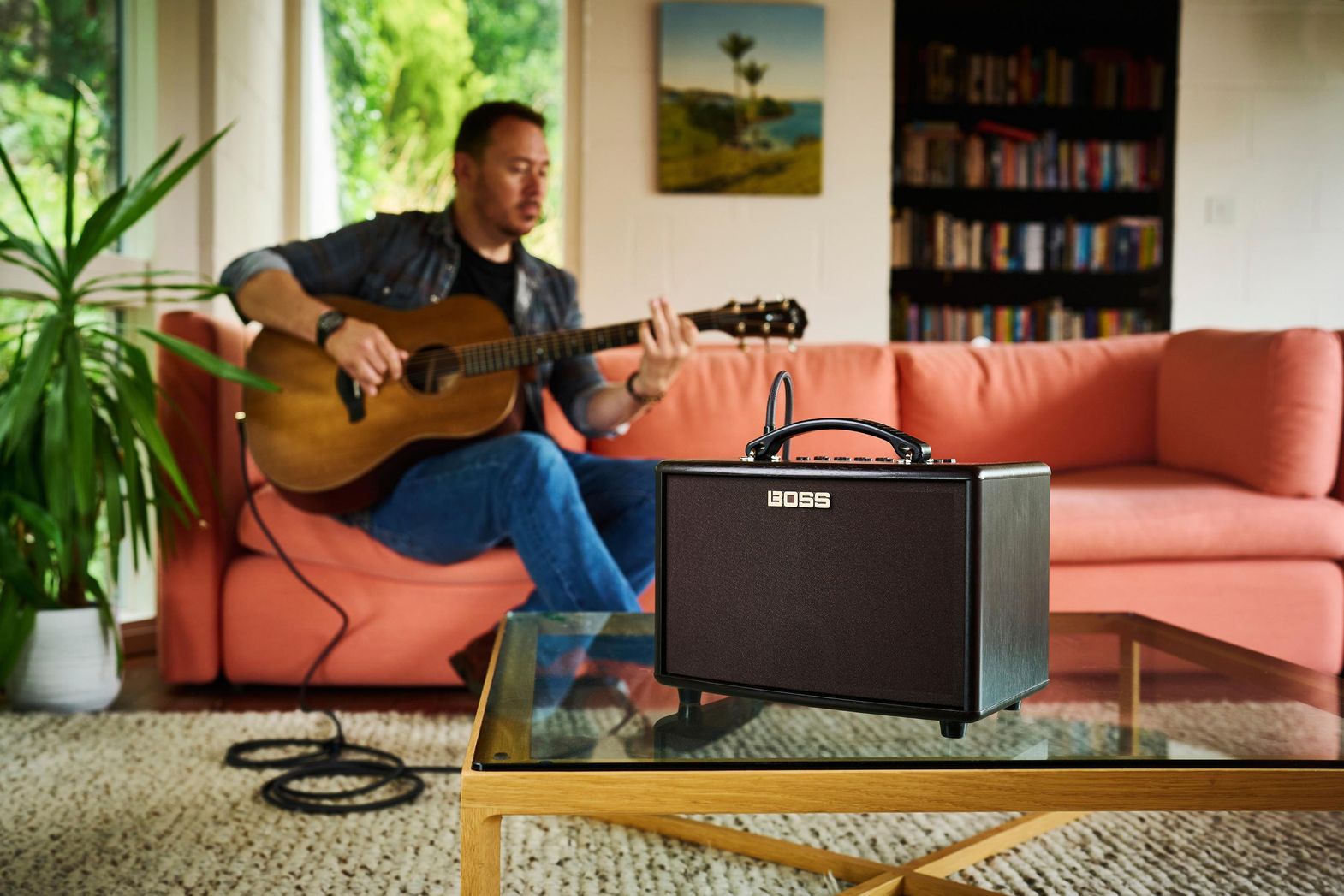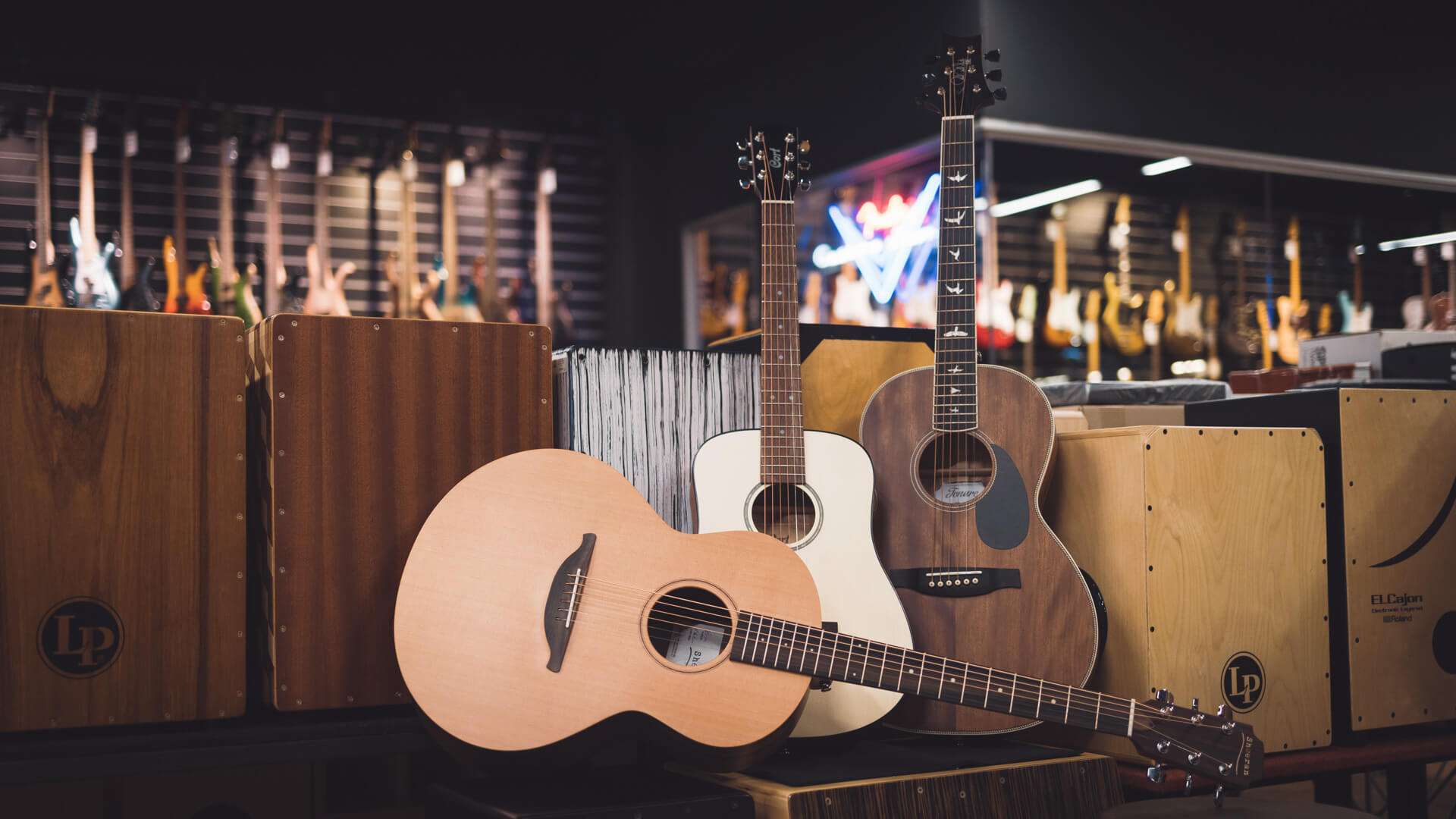Home>Instruments>Guitar>What Is The Best Guitar For Beginners
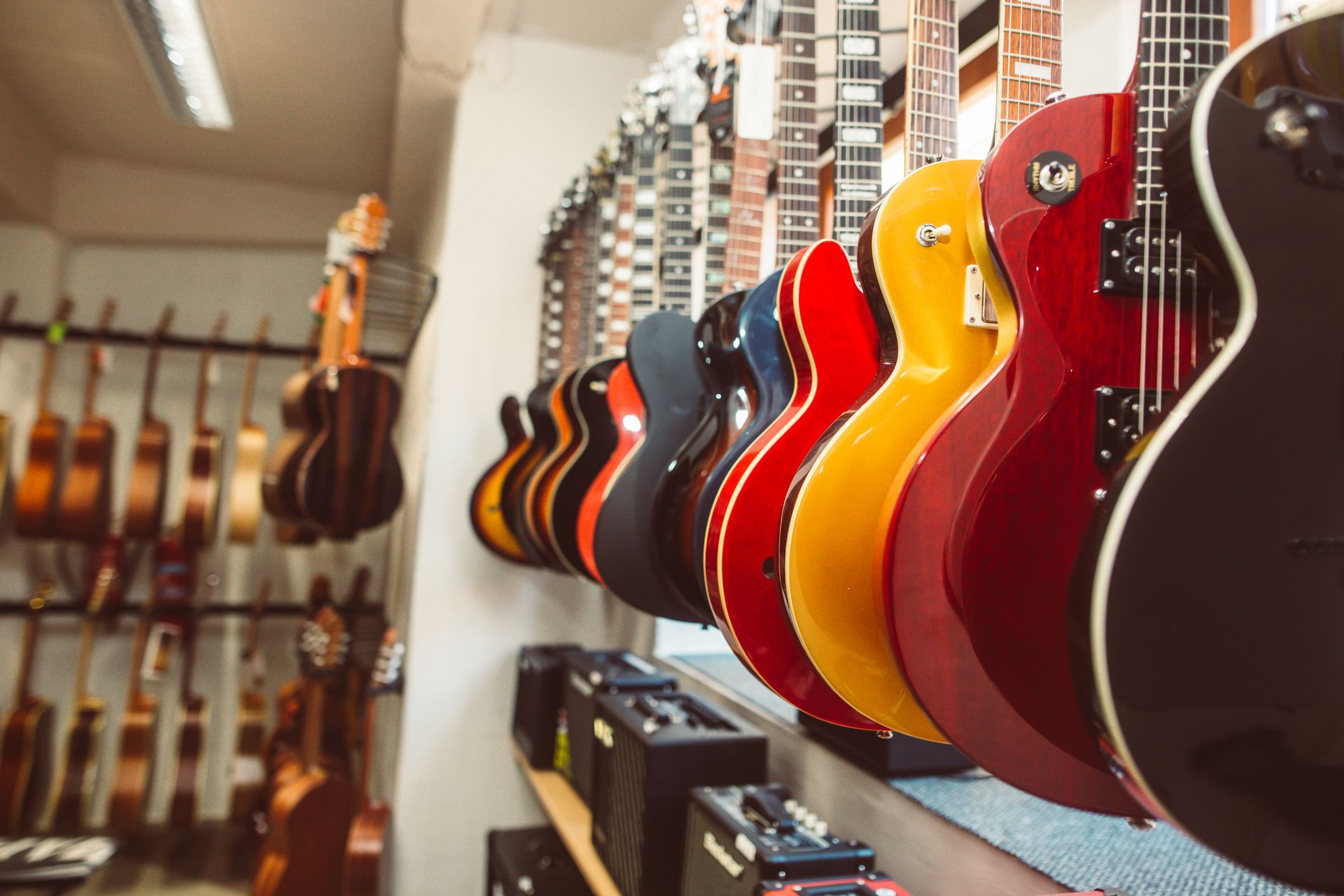

Guitar
What Is The Best Guitar For Beginners
Modified: March 12, 2024
Looking for the best guitar for beginners? Discover top-rated guitars for beginners and start your musical journey today.
(Many of the links in this article redirect to a specific reviewed product. Your purchase of these products through affiliate links helps to generate commission for AudioLover.com, at no extra cost. Learn more)
Table of Contents
Introduction
So, you've decided to embark on a musical journey and learn to play the guitar. Congratulations! Learning to play an instrument is a rewarding and enriching experience that offers a myriad of benefits, from boosting cognitive function to providing a creative outlet. As a beginner, choosing the right guitar is a crucial first step on this exciting path.
In this guide, we'll explore the best types of guitars for beginners, including acoustic, electric, and classical guitars. Each type has its unique characteristics and is suited to different musical styles and preferences. By the end of this article, you'll have a clearer understanding of the options available to you, empowering you to make an informed decision based on your musical aspirations and personal taste.
Whether you're drawn to the rustic charm of acoustic folk music, the electrifying sounds of rock and blues, or the timeless elegance of classical compositions, there's a perfect guitar out there waiting to be strummed by you. Let's delve into the world of beginner guitars and discover which one resonates with your musical ambitions.
Acoustic Guitars for Beginners
Acoustic guitars are beloved for their warm, resonant tones and versatile playability, making them an excellent choice for aspiring musicians. As a beginner, an acoustic guitar offers a gentle learning curve and the ability to play a wide range of musical genres, from folk and country to pop and rock. When selecting an acoustic guitar, consider the body style, tonewoods, and neck profile to ensure a comfortable playing experience.
There are several types of acoustic guitars, each with its own sonic characteristics. The dreadnought, with its bold and balanced sound, is a popular choice for beginners due to its versatility and projection. On the other hand, concert and parlor guitars offer a more intimate sound and are well-suited for fingerstyle playing. When trying out acoustic guitars, pay attention to the resonance, sustain, and overall feel to find one that resonates with you.
For beginners, a solid wood top is desirable as it contributes to a richer, more resonant tone. Additionally, the action (the distance between the strings and the fretboard) should be comfortable for fretting chords and notes. Many acoustic guitars come in a variety of finishes, from natural wood to sunburst, allowing you to choose a look that reflects your personal style.
When it comes to acoustic guitars, there are numerous reputable brands to explore, such as Yamaha, Taylor, Martin, and Fender. These manufacturers offer entry-level acoustic guitars that deliver quality craftsmanship and sound, ensuring that beginners have access to instruments that inspire and encourage their musical growth.
Ultimately, an acoustic guitar for beginners should inspire creativity and provide a platform for learning and self-expression. With the right acoustic guitar in your hands, you’ll be well-equipped to begin your musical journey with confidence and enthusiasm.
Electric Guitars for Beginners
For aspiring rockstars and blues enthusiasts, electric guitars offer a thrilling avenue for musical expression. These guitars are known for their electrifying sound, sleek designs, and the ability to produce a wide range of tones using amplifiers and effects. As a beginner, delving into the world of electric guitars opens up a realm of sonic possibilities, from crunchy power chords to soaring solos.
When choosing an electric guitar, consider the body shape, pickups, and bridge system. The iconic solid-body design of electric guitars, such as the Stratocaster and Les Paul, provides excellent sustain and resonance, making them ideal for various playing styles. Single-coil pickups offer bright and articulate tones, while humbuckers deliver a thicker, more powerful sound, giving beginners the opportunity to explore different sonic textures.
Another aspect to consider is the guitar’s playability, including the neck profile and fretboard radius. A comfortable neck profile and well-finished frets contribute to a smooth and enjoyable playing experience, allowing beginners to navigate the fretboard with ease. Many entry-level electric guitars also feature lightweight bodies, making them comfortable to wield during long practice sessions and performances.
One of the most exciting aspects of electric guitars for beginners is the potential for customization and personalization. From swapping out pickups and experimenting with different gauge strings to exploring a myriad of amplifier and pedal options, electric guitars offer a dynamic platform for honing your unique sound and style.
When it comes to choosing an electric guitar, reputable brands such as Fender, Gibson, Squier, and Epiphone offer a range of beginner-friendly models that deliver quality craftsmanship and exceptional sound. Whether you’re drawn to the timeless allure of a Stratocaster or the raw power of a Les Paul, there’s an electric guitar that will ignite your passion for playing and inspire your musical journey.
With an electric guitar in hand, beginners can unleash their creativity and dive into the captivating world of amplified sound, forging their path as they explore the boundless potential of electric guitar playing.
Classical Guitars for Beginners
Classical guitars, also known as nylon-string or Spanish guitars, exude a timeless elegance and offer a unique playing experience that resonates with musicians seeking to explore the rich heritage of classical and flamenco music. As a beginner, delving into the world of classical guitar playing opens the door to a repertoire of exquisite compositions and delicate fingerstyle techniques, fostering a deep appreciation for the instrument’s expressive capabilities.
One of the defining features of classical guitars is the implementation of nylon strings, which produce a warm and mellow tone that is gentle on the fingertips. This makes classical guitars an ideal choice for beginners who are developing their fingerpicking and classical playing techniques, as the strings are more forgiving and comfortable to play for extended periods.
When selecting a classical guitar, consider the body size, scale length, and tonewoods. Classical guitars typically feature a smaller body size compared to steel-string acoustic guitars, offering a comfortable playing experience for beginners. The scale length, which determines the distance between the nut and the saddle, contributes to the guitar’s overall feel and playability.
Additionally, the choice of tonewoods, such as cedar or spruce for the soundboard and mahogany or rosewood for the back and sides, influences the guitar’s tonal characteristics. These tonewoods contribute to the warm and resonant sound that defines the classical guitar, providing a rich sonic palette for beginners to explore.
Reputable classical guitar makers, including Yamaha, Cordoba, and Alhambra, offer entry-level models that combine quality craftsmanship with affordability, ensuring that beginners have access to instruments that inspire and facilitate their musical journey.
Classical guitars for beginners provide a gateway to the enchanting world of classical and flamenco music, inviting players to immerse themselves in the intricate melodies and intricate techniques that define the genre. With a classical guitar in hand, beginners can embark on a musical odyssey that celebrates the artistry and tradition of classical guitar playing.
Factors to Consider When Choosing a Beginner Guitar
When embarking on your journey as a beginner guitarist, several crucial factors should guide your decision when selecting the right instrument. By carefully considering these elements, you can ensure that your chosen guitar aligns with your musical aspirations and provides a comfortable and inspiring playing experience.
- Playability: One of the most important factors for beginners is the playability of the guitar. This includes the neck profile, fretboard radius, and string action. A comfortable neck profile and well-finished frets contribute to ease of play, allowing beginners to navigate the fretboard with minimal effort and discomfort.
- Tonal Characteristics: The tonal qualities of a guitar are influenced by factors such as tonewoods, body shape, and pickups (in the case of electric guitars). Consider the sonic characteristics that resonate with your musical preferences, whether you’re drawn to the warm resonance of an acoustic guitar, the versatility of an electric guitar, or the delicate tones of a classical guitar.
- Budget: As a beginner, it’s essential to establish a reasonable budget for your first guitar. Fortunately, there are high-quality entry-level guitars available across all types, ensuring that aspiring musicians can find an instrument that meets their needs without breaking the bank.
- Musical Style: Your preferred musical style should inform your choice of guitar. Whether you’re passionate about strumming folk ballads, shredding electric guitar solos, or delving into classical repertoire, selecting a guitar that complements your chosen genre will enhance your playing experience and motivation.
- Brand and Reputation: Opting for guitars from reputable brands ensures that you receive a well-crafted instrument with reliable quality and after-sales support. Established guitar manufacturers offer beginner-friendly models that embody their commitment to excellence and playability.
- Comfort and Ergonomics: Consider the physical comfort of the guitar, including its weight, body shape, and overall ergonomics. A comfortable and well-balanced guitar will encourage longer practice sessions and minimize physical strain during play.
By taking these factors into account, beginners can make an informed and confident decision when choosing their first guitar. Each element plays a crucial role in shaping the playing experience and ensuring that the instrument resonates with the individual’s musical journey.
Conclusion
Embarking on the journey of learning to play the guitar is a thrilling and transformative experience, and selecting the right instrument is a pivotal first step in this musical odyssey. As a beginner, the world of guitars offers a diverse array of options, each tailored to different playing styles, sonic preferences, and musical aspirations.
Whether you’re drawn to the rustic charm of acoustic guitars, the electrifying allure of electric guitars, or the timeless elegance of classical guitars, there’s a perfect instrument waiting to accompany you on your musical endeavors. Each type of guitar possesses its own distinct qualities and characteristics, catering to a wide spectrum of musical genres and personal tastes.
By carefully considering factors such as playability, tonal characteristics, budget, musical style, brand reputation, and comfort, beginners can make an informed decision when selecting their first guitar. This thoughtful approach ensures that the chosen instrument resonates with their individual preferences, inspiring creativity and facilitating a rewarding playing experience.
Reputable guitar manufacturers, such as Yamaha, Taylor, Fender, Gibson, Cordoba, and many others, offer a range of beginner-friendly models that combine quality craftsmanship with affordability, providing aspiring musicians with access to instruments that ignite their passion for playing and encourage their musical growth.
Ultimately, the best guitar for a beginner is one that not only sounds great and feels comfortable to play but also stirs the soul and sparks the imagination. With the right guitar in hand, beginners can embark on a musical journey filled with discovery, creativity, and the joy of bringing music to life through their fingertips.
So, whether you’re strumming your first chords on an acoustic guitar, unleashing soaring solos on an electric guitar, or embracing the delicate nuances of classical guitar playing, remember that the instrument you choose is the gateway to a world of musical possibilities and personal enrichment. Embrace the journey, savor each note, and let the music guide you as you embark on this harmonious adventure.

